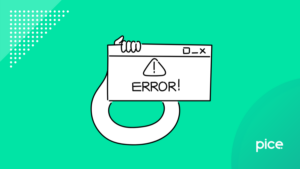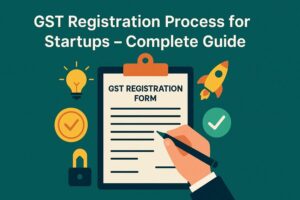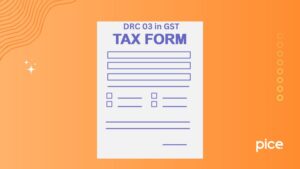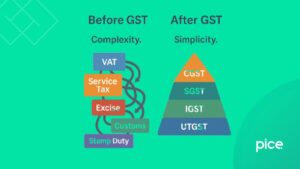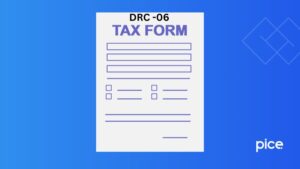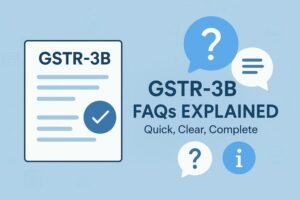Eligibility for GST on Bank Cheques
- 18 Aug 24
- 8 mins

Eligibility for GST on Bank Cheques
Key Takeaway
- GST is applicable at a standard rate of 18% on various bank charges including service fees and cheque processing charges.
- Bank charges related to interest on loans and savings are exempt from GST, important for financial planning and compliance.
- Businesses can claim Input Tax Credit on GST paid on bank charges if these are not for personal use and are documented with a valid tax invoice.
- Proper documentation and timely reconciliation are essential for businesses to successfully claim ITC on bank charges.
- The deadline to claim ITC on bank charges is either by the annual return filing date or the due date of the GST return for September following the end of the fiscal year.
GST Applicability on Different Bank Charges
GST (Goods and Services Tax) is applicable to a wide array of bank charges, reflecting the comprehensive nature of this tax in covering financial services. Common bank charges such as service fees, transaction fees, account maintenance fees, and ATM withdrawal fees typically attract a GST rate of 18%. This standard rate applies regardless of the specifics of the services provided, encompassing everything from fund transfer fees to cheque processing charges.
It's important for businesses to recognize that while most services are taxable, certain bank-related activities like interest on loans and savings are exempt from GST. Understanding the distinction between taxable and exempt services is crucial for accurate financial planning and compliance with GST regulations.
GST on Bank Cheque
GST (Goods and Services Tax) is applicable to various bank charges, including fees associated with bank cheques. These fees may include cheque processing charges, stop payment charges, and cheque book issuance fees, among others. Typically, such charges attract a standard GST rate, which is usually 18%.
For businesses, these charges, when directly related to their operations, can be eligible for Input Tax Credit (ITC). This allows businesses to claim back the GST paid on these services, provided the charges are not for personal use or for making exempt supplies. It is important for businesses to maintain proper documentation, such as tax invoices that detail the GST paid on these charges, to successfully claim ITC. This practice ensures that businesses can mitigate some of the costs associated with banking fees.
💡If you want to pay your GST with Credit Card, then download Pice Business Payment App. Pice is the one stop app for all paying all your business expenses.
Eligibility for Input Tax Credit on Bank Charges
Businesses are generally eligible to claim Input Tax Credit (ITC) on the GST paid on bank charges, provided these expenses are incurred in the course of conducting their business. The eligibility to claim ITC hinges on several key conditions: the charges must not be for personal use or for making exempt supplies, and they must be documented properly through valid tax invoices issued in the name of the business with its GSTIN mentioned.
For ITC claims to be valid, the bank charges must be directly related to services that are used in the business operation, thus forming an integral part of the business's taxable output. It's important for businesses to maintain accurate records and ensure proper invoice matching in their GST filings to successfully claim ITC on bank charges. This process helps in offsetting the GST paid on these services against the GST liability on sales, thereby reducing the overall tax burden on the business.
Procedures to Claim Input Tax Credit on Bank Charges
To claim Input Tax Credit (ITC) on bank charges, businesses must follow a set of structured procedures to ensure compliance with GST laws:
- Obtain Proper Documentation: Ensure that all bank charges have associated tax invoices issued by the bank. These invoices should include all necessary details such as the bank’s GSTIN, the GST charged, and a clear description of the service provided.
- Ensure Eligibility: Verify that the bank charges are related to business activities and not for personal use or for making exempt supplies. The charges must be integral to the business operations and necessary for making taxable supplies.
- Record Keeping: Maintain meticulous records of all bank transactions and associated GST payments. This includes keeping all tax invoices and bank statements as they need to be readily available for GST audits and filings.
- Input Tax Credit Reconciliation: Regularly reconcile the GST credits claimed with the GST returns filed. This reconciliation should match the tax credit claimed with the GST actually paid on the bank charges, as recorded in the invoices.
- Filing GST Returns: Include the ITC on bank charges in the monthly GST return filings. The ITC can be claimed in the tax period in which the invoice was received and accounted for in the books of the business.
By adhering to these procedures, businesses can effectively claim ITC on bank charges, thus reducing their overall GST liability and improving cash flow management.
Criteria for Claiming Input Tax Credit on Bank Charges
To successfully claim Input Tax Credit (ITC) on bank charges under GST, businesses must meet specific criteria:
- Business Use: The bank charges must be incurred in relation to services used for the business’s operational purposes. Charges related to personal use or for activities that yield exempt supplies do not qualify for ITC.
- Valid Tax Invoice: The business must possess a valid tax invoice for the bank charges. This invoice should include the GSTIN of the business, details of the service, the amount charged, and the GST paid. This document is crucial for filing claims.
- GST Compliance: The bank, which is the service provider, must be GST compliant, meaning they should charge and remit GST correctly. The GST details on the bank’s invoice should match the records that are submitted to the GST network.
- Timely Documentation: The documentation related to the bank charges must be received and recorded in the books of account within the financial year or by the due date of filing the return for September following the end of the fiscal year, whichever is earlier.
- No Prohibition under GST Law: The ITC claim should not fall under any of the specific prohibitions under GST law, such as those related to goods or services used for personal consumption.
Meeting these criteria ensures that the GST paid on bank charges can be effectively reclaimed, thereby reducing the overall tax burden on the business. This process requires meticulous record-keeping and timely compliance to optimize tax benefits under the GST framework.
Deadline for Claiming Input Tax Credit on Bank Charges

The deadline for claiming Input Tax Credit (ITC) on bank charges under GST is tied to specific statutory requirements. Businesses must claim their ITC within the following time limits:
| Criteria | Description |
|---|---|
| Annual Return Filing | ITC must be claimed by the date of filing the annual return for the financial year of the charges. |
| Due Date of September Return | ITC must be claimed by the due date of filing the GST return for September following the end of the financial year. |
This deadline ensures that all claims are made in a timely manner, helping to maintain fiscal discipline and ensuring compliance with GST regulations. It is essential for businesses to keep a vigilant track of these deadlines to maximize their tax benefits and avoid losing out on eligible credits.
 By
By 





